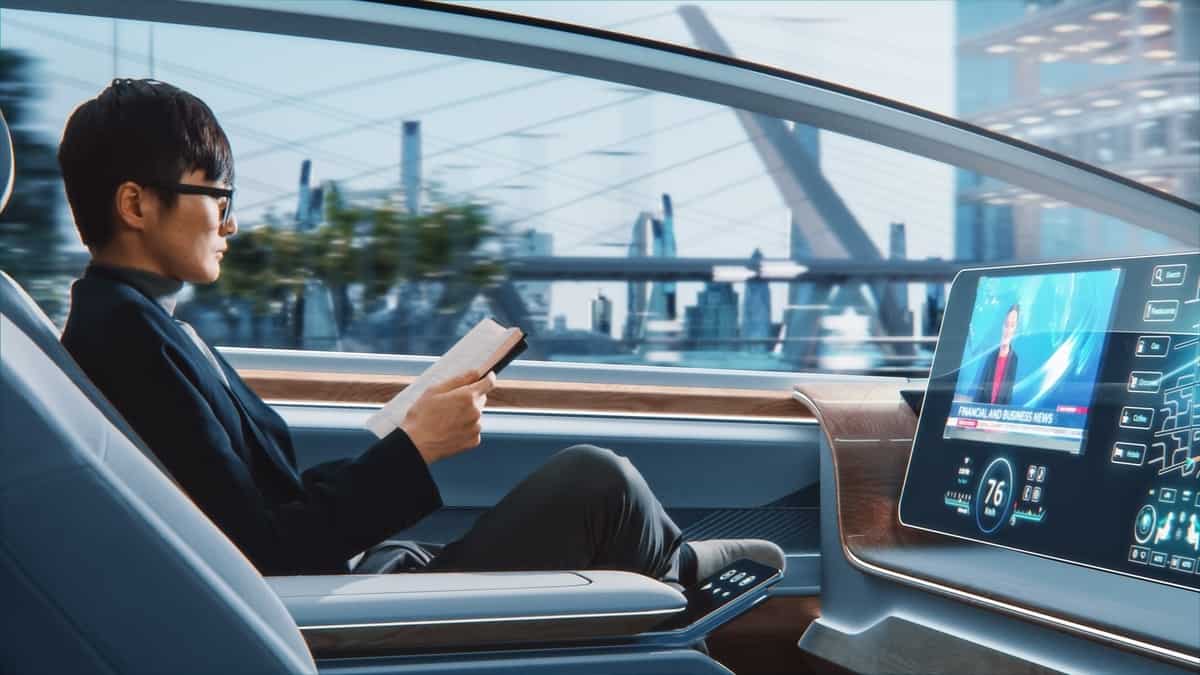Halo.Car has officially launched its groundbreaking remotely piloted rental car delivery service in Las Vegas in a bold move that promises to revolutionize the car delivery industry.
This milestone signifies an important advancement for Halo.Car, as it transitions from having human drivers present in vehicles to delivering cars to customers with no drivers inside. Likewise, this innovative approach to car delivery allows customers to experience seamless and contactless vehicle delivery and pickup, setting a new standard for convenience and safety in the rental car market.
Revolutionizing the car delivery landscape: Halo. Car’s unique approach
Unlike traditional autonomous vehicle companies, Halo.Car has taken a distinctive route with its driverless operations. Instead of relying on self-driving capabilities, the startup employs a fleet of vehicles equipped with an array of six sophisticated cameras, modems, and antennas that transmit real-time data to remote pilots stationed at Halo’s operations center.
These skilled remote drivers use the data to control the vehicles, delivering them to customers’ desired locations.
Once a remote driver completes a delivery, full control of the vehicle is handed over to the customer, ensuring a convenient and contactless experience.
Phased transition to full autonomy
Halo.Car’s move toward driverless rental car deliveries is a significant milestone in the company’s pursuit of economically viable on-demand transportation.
Halo.Car Founder/CEO Anand Nandakumar emphasized the importance of this step in aligning with the company’s long-term vision.
While the company acknowledges that it is not yet hitting positive unit economics, it has put safety at the forefront of its deployment strategy. During the initial stages, Halo accompanies the remotely piloted vehicles with a remote chase car, which can intervene and take control if necessary. This measure ensures the safety of both the customers and other road users.
Furthermore, the company’s vehicles are equipped with state-of-the-art sensors and advanced driving systems, ensuring customers’ secure and reliable journeys.
Halo.Car’s commitment to safety extends to its compliance with Nevada’s minimal risk condition for autonomous vehicles, which requires the ability to stop the vehicle in case of a system malfunction.
As Halo.Car continues its operations and gathers data, the plan is to gradually eliminate the use of the tail car and further optimize the system’s performance.
The company aims to extend its coverage and service availability in Las Vegas and beyond, showcasing the potential of its innovative technology in shaping the future of rental car services.
Notably, Halo.Car’s announcement follows six months of rigorous testing and internal training, ensuring the system’s safety and readiness for deployment.
“As we’ve seen in the rollout of AVs, there are a lot of scenarios to solve for when the vehicles don’t have a driver inside.
We want to make sure that our deployment causes minimal public disruption, and of course, is absolutely safe for all road users.”
Halo.Car CEO/Founder Anand Nandakumar
Connectivity and expansion plans
Connectivity plays a crucial role in Halo.Car’s business model. The company’s fleet of vehicles is remotely piloted over T-Mobile’s 5G network, supplemented by AT&T and Verizon as backup options.
In addition, the use of multiple networks ensures reliable, high-quality streaming and low latency during the remote piloting process, contributing to enhanced safety and efficiency.
As of now, Halo’s driverless rental car deliveries are operational in Las Vegas from 8 am to 6 pm. However, the company aims to gradually expand the operation coverage to more city areas in the next months.
The company’s 20-vehicle fleet consists of Chevy Bolt EVs and Kia Niro EVs, with plans to expand to hundreds of units in Vegas before venturing into new cities in 2024.
A milestone for Halo.Car: Preparing for expansion
Halo. Car’s transition to driverless deliveries represents a significant achievement for the company, validating the commercial viability of its remote-piloting technology.
“Our transition to driverless deliveries marks a significant milestone for us as a company. It proves that our remote-piloting technology is not just innovative but commercially viable and ready to be scaled up.
As we prepare to expand and launch new markets, our mission remains unchanged: to provide affordable, accessible, efficient EV transportation.”
Halo.Car CEO/Founder Anand Nandakumar
See Also:
- BYD: Fully autonomous driving is “basically impossible”
- Ford develops a new autonomous driving unit
- WeRide to begin testing its autonomous vehicle tech in Singapore this year
- Geely Automobile unleashes 72 satellites in three years for fully autonomous driving
- Mercedes-Benz to offer SAE Level 3 system, conditional autonomous driving in the US
The startup’s commitment to advancement and commercial viability paves the way for a future of driverless car deliveries in the city.

